Rural origins inspire eye care solutions
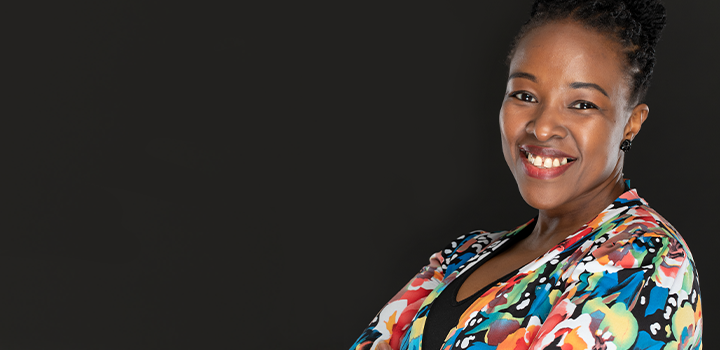
To help treat patients with keratoconus, a condition that affects the cornea, Dr Bayanda Mbambisa received the 2019 Discovery Foundation Rural Institutional Award to expand the corneal transplant service at the Port Elizabeth Provincial Hospital.
Seeing the joy on the faces of patients that her GP parents cured in the rural former Transkei town of Engcobo inspired Dr Bayanda Mbambisa to follow their example. Now part of a tight knit 12 person ophthalmological team at the Port Elizabeth Provincial Hospital, she muses, “It’s funny how kids react. My sister was a bit grossed out by the blood and guts part of medicine and said she’d never do that, yet I was inspired.”
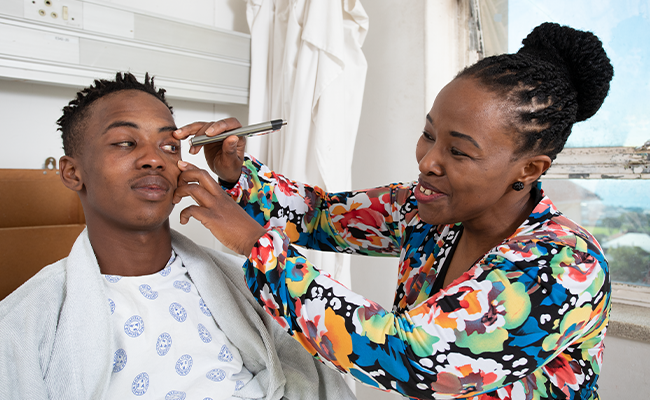
Her deep connection to rural people and their struggles has given her the passion to make a difference in the lives of her patients, especially those with keratoconus.
Some patients brought them chickens, vegetables or mielies, anything they could as a token of gratitude for free treatment. “I saw the sick people coming for treatment and the joy they showed after my parents’ successful interventions. The lives my parents saved are what stayed with me and pushed me in the direction of medicine.”
Her parents still practise in Mthatha, but are now semi-retired. Her father began studying further and by the time Dr Mbambisa was at Kingswood College, he had qualified as an obstetrician gynaecologist. It was something she admired and replicated, except she chose ophthalmology, a branch of medicine that deals with the diagnosis and treatment of eye disorders and diseases. She graduated from the University of the Witwatersrand as a specialist after securing her MBBCh in 1999.
Her deep connection to rural people and their struggles has given her the passion to make a difference in the lives of her patients, especially those with keratoconus, a progressive eye condition that affects the clear layer in the front of the eye. Her ophthalmological team has the will and knowledge to treat the condition, but not always the tools. Untreated, keratoconus may lead to blindness, which only a corneal transplant can reverse. Early detection and intervention as well as the ability to conduct corneal transplants can transform the lives of young people who are typically affected by keratoconus in their early teenage years to their early twenties.
Restoring sight
Dr Mbambisa explains that a corneal transplant for advanced keratoconus gives a 60% to 80% improvement in vision. This can take anything from a few weeks up to a year, depending on the patient. Most patients will still need contact lenses or glasses after the corneal transplant to restore full sight.
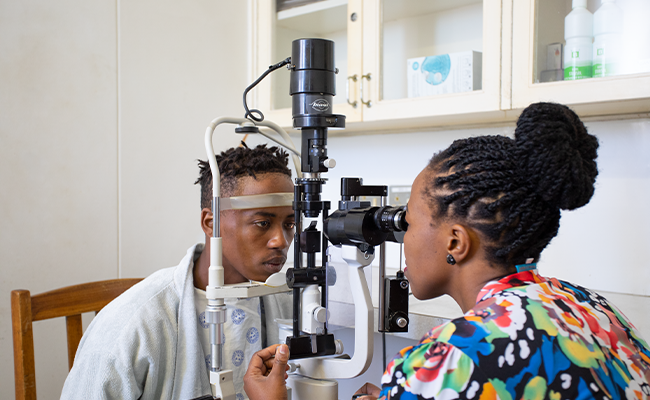
Dr Mbambisa explains that a corneal transplant for advanced keratoconus gives a 60% to 80% improvement in vision.
To illustrate the value of this intervention, Dr Mbambisa describes a 16-year-old who was failing at school because of his poor eyesight. “We did a corneal transplant on one eye and then the other. Within a few months, he could see on the board and no longer had to copy from others. He had a new lease on life. The same outlook is possible for other children or young adults with less advanced conditions.”
She says the condition has a reported incidence of around one in 2 000 people, the majority of which undiagnosed. It causes the normally round cornea to become progressively oval or cone shaped. Progressive steepening and thinning of the apex of the cone may lead to a break in the inner part of the cornea, releasing fluid from the inside of the eye into the corneal tissue, causing instant blindness. It affects both eyes but the severity may not be the same in each eye and it occurs in people who continually rub their eyes or have some ocular or systemic allergy. Certain medical conditions like Down syndrome or some connective tissue disorders also increase the likelihood of keratoconus developing.
Empowering doctors who provide eye care
Like other specialty departments, hers also has a huge patient load that is worsened by outreach programmes stopping because of lack of finances. Sourcing and motivating for the equipment that enables early intervention to stabilise the condition has proved impossible – until now. Her grant will help to source much-needed equipment and resources, including:
- A Pentacam® to take a picture of the front and back surfaces of the cornea to detect pre-clinical keratoconus
- An ocular coherence tomography attachment to take cross-section pictures of the cornea to identify where the pathology lies and enable more accurate surgical intervention
- Supplies of riboflavin (vitamin B2)
- UV lights
- Hard contact lenses
- Corneal tissue for transplants
Dr Mbambisa says this new material and funds for the advanced training of their optometrist or possible sessions by two other optometrists, plus her team attending surgical technique workshops, make the Discovery Foundation grant game-changing.
She counts her biggest challenge so far as having to tell families that her unit doesn’t have access to the intervention they need and cannot help. “It’s sad. Sometimes they manage to put the money together to get private sector assistance,” she says. With the new equipment, they expect a dramatically increased patient referral inflow as the state healthcare network realises the benefits of vastly improved treatment.
The images on this page were taken leading up to the 2019 Discovery Foundation Awards before COVID-19 reached South Africa. Stay healthy. Stay home.
About the Discovery Foundation
Since 2006, the Discovery Foundation has invested over R256 million in grants to support academic medicine through research, development and training medical specialists in South Africa.
The Discovery Foundation is an independent trust with a clear focus – to strengthen the healthcare system – by making sure that more people have access to specialised healthcare services. Each year, the Discovery Foundation gives five different awards to outstanding individual and institutional awardees in the public healthcare sector.
Related articles
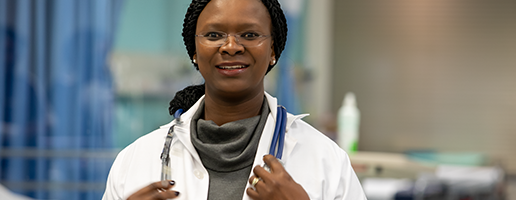
Helping sexual assault survivors in her community
Dr Yandiswa Mnyanda, armed with her Discovery Foundation Rural Individual Fellowship Award, is determined to make a difference in her community by finding out why survivors of sexual violence in the Eastern Cape report so late for care.

Vitamin deficiency evidence – a likely gamechanger in mental health
Megan Schultz’s research on the nutritional state of mentally ill patients could significantly improve the lives of many people, especially if bolstered by evidence-based policies and changes in nutrition-related laws.
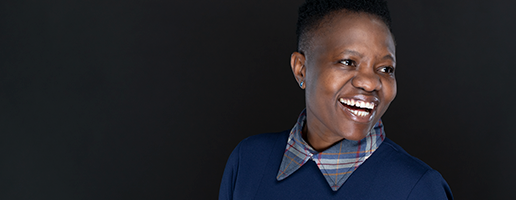
Boosting Limpopo’s child cancer survival rate
It was during her paediatric department rotation at Sefako Makgatho Health Sciences University in 2003 that South Africa’s first black female paediatric oncologist, Dr Vhutshilo Netshituni, fell in love with children.